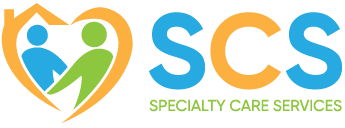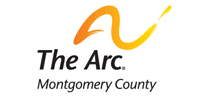Fetal Alcohol Syndrome (FASD) In-Home Care
Maryland, Washington, D.C., and Northern Virginia
24/7 Nurse Availability
Free In-Home Assessments
Over 25 Years of Experience
Hours:
Request Call Back
Hero Request Form
Thank you for contacting us.
We will get back to you as soon as possible.
Please try again later.
Specialized Fetal Alcohol Syndrome Home Care
At SpecFind, the Personalized Support for Your Loved One with FASD:
Our FASD Home Care Program is for families and loved ones who want to make everyday life safer, calmer, and more doable with personalized in-home nursing or home care.
If you’re a parent, guardian, or loved one supporting someone with Fetal Alcohol Spectrum Disorder (FASD) and you’re wondering whether in-home help would make daily life safer and more manageable, you’re in the right place. This page explains:
- Who we serve
- How we provide care
- Clear signs that it might be time to bring help into the home
- Professionals & providers we collaborate with
- What areas do we serve
- How coverage works in Maryland, DC, and Northern Virginia
- A Step-by-Step guide on how our process works
Who We Serve
We support children, teens, and adults with FASD—as well as their families. This includes Fetal Alcohol Syndrome (FAS), Alcohol-Related Neurodevelopmental Disorder (ARND), and Neurobehavioral Disorder Associated with Prenatal Alcohol Exposure (ND-PAE). Our team’s experienced caregivers provide the support that helps those with FASD succeed at home:
- Consistent routines and cueing: morning and night routines, meal preparation & feeding assistance, homework scheduling, community integration, transportation, and appointment escort
- Safety supervision: kitchen, medication administration and management, community outings, and chaperone
- Activities of Daily Living help: bathing, dressing, toileting, medication reminders, attending appointments, and daily habits practice
- Behavioral support: coaching consistent with the individual’s plan, collaboration with mental health providers, and behavioral health practice
- Skilled home health: ordered by a clinician (includes teaching/monitoring new meds, wound care, seizure action plans, post-hospital home care)
FASD often includes executive-function, adaptive, and self-regulation. That’s why Specialty Care Service’s day-to-day support matters: it provides predictable structure and consistent improvements.
How We Provide Care
We create personalized care plans for our FASD clients depending on their needs, which can include:
1. Companion Care
- Provides social interaction, supervision, and structured activities
- Supports participation in hobbies, games, and community outings
- Helps reduce isolation and increase engagement
- Provides after-school care and support
2. Personal Care
- Assistance with bathing, dressing, grooming, and feeding
- Help with toileting and incontinence care
- Support with mobility and transfers
- Always promoting dignity and comfort
3. Nursing Care
- A registered nurse performs a healthcare assessment to identify needs
- Development of a personalized care plan tailored to the individual
- Medication management, behavioral health support, and health monitoring
- Training for caregivers on medical and behavioral best practices
Respite Care
- Short-term relief for family caregivers
- Care provided in the home so loved ones can rest, travel, or attend to other responsibilities
- Flexible scheduling to meet urgent or planned needs
5. 24/7 Care
- Around-the-clock home support for individuals with high or complex care needs
- Overnight monitoring to ensure safety, comfort, and prompt response to needs
- Continuous personal care, companion care, and nursing oversight as required
What Are the Signs Your FASD Loved One May Need In-Home Care?
Families typically reach out when daily life isn’t safe or functional without hands-on help. Common signs include:
- Activities of Daily Living (ADL) changes: Needing physical help with bathing, dressing, toileting, transfers, or continence, frequent reminders aren’t enough anymore; daily and weekly structure and consistency are declining or nonexistent.
- Executive-function gaps: Trouble managing time, money, medication, or appointments without cueing, meals are skipped or unsafe, and chores or hygiene habits collapse without step-by-step support. Research shows adaptive functioning is commonly reduced in FASD without consistent effort (regardless of IQ).
- Safety risks: Impulsivity, poor judgment, vulnerability to exploitation, wandering/elopement, or household hazards (stove/chemicals/med errors).
- Behavioral/mental-health load: Co-occurring ADHD, anxiety/depression, or substance use creating instability at home. Families regularly need structured routines and respite to prevent crises.
- New medical complexity: Seizures, wounds, feeding issues, or new meds that require teaching/monitoring by a home health nurse.
- Caregiver burnout: Families often tell us about their exhaustion, missed work, or inability to keep up with constant supervision while caring for those with FASD.
If your FASD loved one is experiencing any of these signs and symptoms, schedule a free consultation with us to determine if we can help or what their best course of action should be.
Professionals and Providers We Collaborate With
We commonly coordinate with:
- Developmental pediatricians, primary care clinicians, and neurology/psychiatry providers
- Behavioral therapists and psychologists
- Occupational Therapists, Speech Therapists, and Physical Therapists for sensory, functional communication, and motor goals
- School & Special Needs Teams to carry strategies from school to home
- Case managers/service coordinators – including county professionals, DDA/DDS/DBHDS, and Medicaid MCOs
- Regional hospitals and care teams, including Children’s National, Inova developmental/pediatric programs, University of Maryland maternal-fetal and perinatal substance-use programs, and FASD United’s Family Navigator for diagnosis/referrals.
What Areas We Serve – And Why
We focus on Montgomery County, MD, Prince George’s County, MD, Howard County, MD, Frederick County, MD, Washington, DC, Fairfax County, VA, and Arlington County, VA. These communities have high family needs with strong referral networks for home- and community-based services (HCBS). Children in the areas we serve with FASD:
- Montgomery County, MD – Between 2,500 and 12,300 meet FASD criteria. [1] [2]
- Prince George’s County, MD – Between 2,100 and 10,500 estimated with FASD. [3] [4]
- Howard County, MD – About 790–3,950 estimated with FASD. [5]
- Frederick County, MD, Between 690–3,430 with FASD. (6)
- Washington, DC – 1,265–6,326 estimated with FASD. [7]
- Fairfax County, VA – 2,580–12,900 estimated to have FASD. [8]
- Arlington County, VA – 430–2,150 diagnosed with FASD. [9]
In total, between 7,170 and 49,000 children in the counties we serve are estimated to have FASD. This means that thousands of families may be struggling with finding the care and support their loved one with FASD may need. This is where Specialty Care Services can help.
Local Care Access and Coverage Information
Here’s how you can access financial coverage in your area:
District of Columbia (DC)
- DC Health operates an FASD initiative with awareness, counseling, and referrals—an easy starting point for families. [10]
- Washington, DC, passed a law called the Developmental Disability Eligibility Reform Amendment Act (DDERAA), allowing people with a broader range of developmental disabilities—like FASD—to access care. [11]
Maryland
- The Developmental Disabilities Administration (DDA) manages HCBS supports for people with developmental disabilities who meet eligibility. [12]
- Maryland statute authorizes a statewide FAS public-awareness campaign every year.
Virginia
- DBHDS/DD Waivers, such as Building Independence, Family & Individual Supports, and Community Living, cover in-home supports and respite for individuals with developmental disabilities when functional criteria are met. [13]
Why Choose In-Home Care vs. Care Facilities?
- Real-life carryover: Skills practiced in the kitchen, bathroom, and bedroom stick better when practiced in the environment where they’ll be performed.
- Consistency across settings: We coordinate with school teams and clinic providers so strategies match at home.
- Caregiver relief & safety: Supervision, cueing, and respite reduce burnout and prevent complications.
- Family involvement and training: Loved ones can observe, learn, and participate in care routines alongside professional caregivers
- Stronger community integration: Home-based services keep individuals connected to their neighborhoods, schools, churches, and local activities, rather than isolating them in a facility.
- Healthcare needs at home: When ordered by a clinician, home health nurses provide teaching/monitoring, wound care, seizure checks, and more.
How It Works (Step-by-Step)
- Nurse Assessment (RN): Comprehensive in-home evaluation of activities of daily living (ADLs), safety, triggers, communication, and medical needs.
- Personalized Care Plan: Design a custom plan around each client’s unique needs. Clear daily routines and safety plan, align actions with school, clinic, and professional recommendations, or define respite hours.
- Care Team Match: Introductions to your home caregiver(s) and, when ordered, home health nurse.
- Start of Care: We begin with goal-focused sessions and consistent wins.
- Check-ins & Adjustments: Regular RN and coordinator reviews, plus collaboration calls with your clinicians/school team.
- Measure What Matters: Take notes and measurements on improvements or deteriorations in daily activities and health, sharing results with the family and collaborative providers.
Sources
- Montgomery Planning Board. Montgomery County Demographic Data.
https://planning.maryland.gov/MSDC/Documents/American_Community_Survey/2018/CNTY_24031_acs_2018.pdf
Accessed August 2025. - U.S. Census Bureau. QuickFacts: Montgomery County, Maryland.
https://www.census.gov/quickfacts/fact/table/montgomerycountymaryland
Accessed August 2025. - Prince George’s County Health Zone. Demographic Data.
https://www.pgchealthzone.org/demographicdata?id=1260§ionId=942
Accessed August 2025. - Prince George’s County Planning Department. Quality of Life and Community Indicators Study.
https://www.pgplanning.org/wp-content/uploads/2023/10/2009-Prince-Georges-County-Quality-of-Life-and-Community-Indicators-Study-PDF.pdf
Accessed August 2025. - U.S. Census Bureau. QuickFacts: Howard County, Maryland.
https://www.census.gov/quickfacts/fact/table/howardcountymaryland
Accessed August 2025. - U.S. Census Bureau. QuickFacts: Frederick County, Maryland.
https://www.census.gov/quickfacts/fact/table/frederickcountymaryland
Accessed August 2025. - DC Action. Kids Count Data: District of Columbia Child Population.
https://wearedcaction.org/kids-count-data
Accessed August 2025. - U.S. Census Bureau. QuickFacts: Fairfax County, Virginia.
https://www.census.gov/quickfacts/fact/table/fairfaxcountyvirginia
Accessed August 2025. - U.S. Census Bureau. QuickFacts: Arlington County, Virginia.
https://www.census.gov/quickfacts/fact/table/arlingtoncountyvirginia
Accessed August 2025. - DC Health. Fetal Alcohol Spectrum Disorder (FASD) Initiative.
https://dchealth.dc.gov/service/fetal-alcohol-spectrum-disorder-fasd
Accessed August 2025. - Code of the District of Columbia. Developmental Disability Eligibility Reform Amendment Act of 2022 (Law 24-117).
https://code.dccouncil.gov/us/dc/council/laws/24-117
Accessed August 2025. - Maryland Department of Health, Developmental Disabilities Administration. Medicaid Waiver Programs.
https://health.maryland.gov/dda/Pages/Medicaid_Waiver_Programs.aspx
Accessed August 2025. - Virginia Department of Behavioral Health and Developmental Services (DBHDS). Developmental Disabilities Waivers.
https://dbhds.virginia.gov/developmental-services/waiver-services/
Accessed August 2025.
- Bullet text
- Bullet text
- Bullet text
- Bullet text
- Bullet text
- Bullet text
- Bullet text
- Bullet text
- Bullet text
- Bullet text
Do I need a clinician’s order or referral to start FASD home care services?
No, you can contact us directly to begin care.Does private insurance cover in-home FASD care services?
Coverage depends on your plan and medical needs. Some services may be covered through private insurance, Medicaid waivers, or developmental disability programs. We can help you explore your options.Do you offer overnight or 24-hour home support for individuals with FASD who have impulsivity or safety needs?
Yes. We provide overnight and 24/7 in-home care for those with higher-support needs.Is respite care available on short notice for families caring for someone with FASD in our service area?
Yes. We offer flexible respite care, including urgent or short-notice support, to give families relief when they need it most.Can family members observe or train alongside caregivers to learn effective FASD support strategies at home?
Absolutely. We encourage family involvement and provide training so loved ones can learn techniques that support consistency at home.Can your services assist with transitions after hospitalization or changes in medical needs for someone with FASD?
Yes. Our nurses and caregivers specialize in post-hospital transitions and adapting care plans when new medical needs arise.

CP #1 Headline
CP #1 Body
CP #1 CTA Lead-in
Not valid with any other offers or promotions. Restrictions apply.
Must mention this coupon at the time of scheduling.
Reviews



